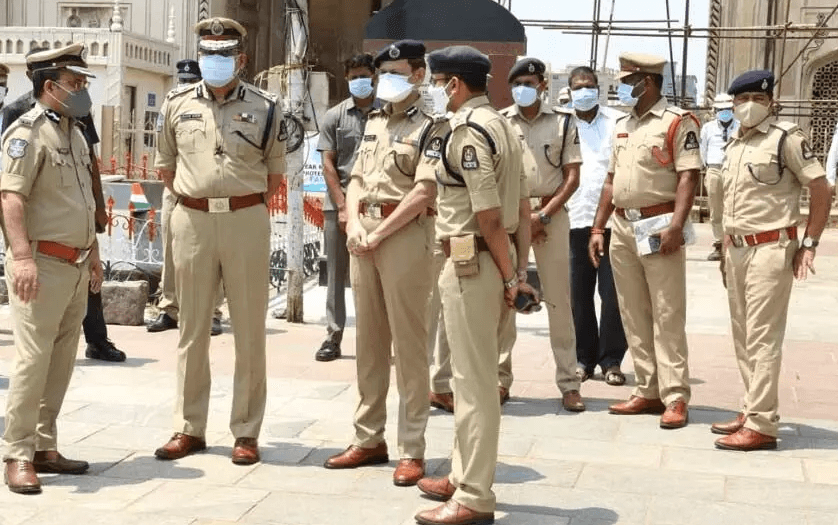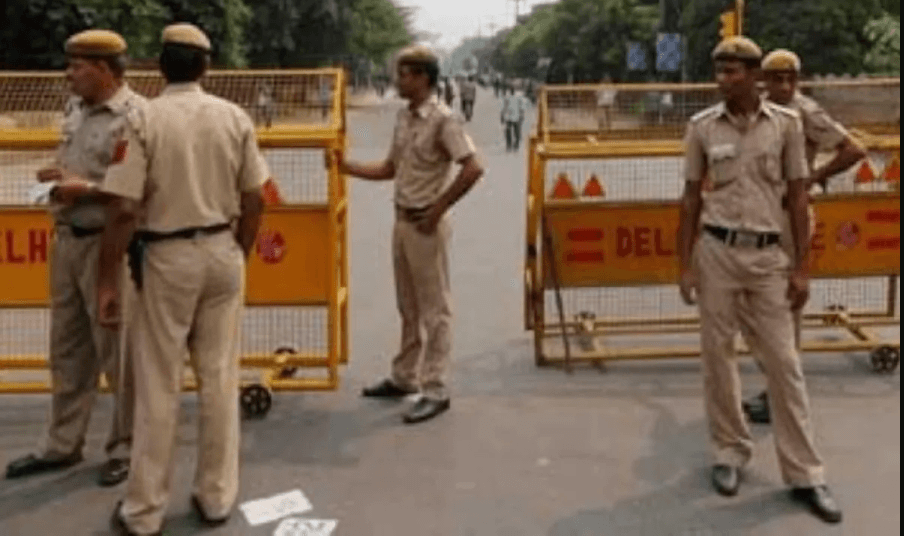Police officers act pricey only to appear relevant

Suppose you are in some serious trouble, maybe the victim of some crime, and you try to reach out to some police officer for help. You might be happy to speak to the SHO also—anybody but the duty constable who is dumb beyond imagination. What is most likely to happen in this audacious misadventure of yours?
It is almost certain that you shall not be able to contact any officer of consequence. I will narrate various situations that are likely to present themselves, much to your utter consternation and frustration. The following I not being written in jest. I am writing it in all seriousness because unless you have been a sufferer yourself, it may be difficult for you to imagine the sense of utter helplessness and dismay that engulf a person who tries to contact a police officer in distress and finds him simply unavailable or refusing to listen to you.
If you try hard, you might find God, but not a police officer
I presume you are a common man who does not know any such journalist, businessman or politician who might give you the direct mobile numbers of police officers. You may try looking up the official websites. Yes, there would be some landline numbers given and perhaps some mobile numbers too.
In your urgency, you may try the mobile numbers. In all probability, they would not be answered. If at all they are answered, it will be some PSO (personal security officer) or driver answering. He would coldly inform you that he does not know where the ‘sahib’ is. End of the matter.

The direct mobile numbers, which the officers answer, is a state secret. It is a secret bigger than the location of the nation’s nuclear weapons and their firing codes. This secret is known only to two categories of people. First are those whom the sahib himself looks up to for some personal benefit and is always eager to oblige them in myriad ways. They may be senior officers, politicians, businessmen, influential media persons or even criminals. Second are those generally rich or resourceful people, who are always eager to oblige the sahib with everything, ranging from costly gifts to girls in return for some favours someday. These numbers are stored in their mobiles and, as a rule; they never pick up a number, which is not stored.
If by any chance or fluke, you manage to get the direct numbers of the officers and dial them, the following may happen. In all probability, they would not answer the unknown number. If by any remote chance, they answer, you are likely to hear a blood-curdling growl, “I am in a meeting” and the phone would be disconnected in a microsecond. You will actually be scared that by committing the unpardonable sin of calling the sahib directly on his secret mobile, you have incurred his wrath and you might land in greater trouble than the one for which you called him in the first place.
The other alternative is to call on the landline. It would be answered by the PA. He has two stock answers. The first is that the sahib is busy in a meeting. The second is that the sahib has gone to the field. This calls for some enlightenment. The meeting is a mysterious thing. Nobody knows what it is but the more senior the officer, the more time he is supposed to spend in meetings. Even if he is taking a post-lunch siesta in the office, or gossiping with friends or sycophants, he is supposed to be in a meeting. If he is a relatively junior officer or SHO type, he would be claimed to be perpetually in the field. They are like satellites, revolving around the earth tirelessly.
There is a third stock answer also, usually reserved for people coming from the lower strata of the society. It tells them that the sahib is taking a rest. They must be made to understand that the sahib has not cleared the UPSC Civil Services Exam with great effort to listen to the woes of lowly people like the caller. The implied meaning is that people clear the UPSC exam to lead the rest of their lives in stately comfort and they cannot be bothered with the troubles of the hoi polloi.
You should also note one unwritten rule. Come what may, the sahib cannot be disturbed in the meeting. Meetings are sacrosanct. The disturbing meeting might result in a disaster of sorts. Pakistan might launch a nuclear attack or China might cause the Brahmputra to flood—everything depends on the unperturbed conclusion of the meeting.

Those who are obstinate enough and go the offices of the officers will generally not find them there. If at all they are there, there would a formidable barrier in the form of red light on top of the doors. This red light is switched on the moment they enter the office and remains on as long as they are there, indicating that they are terribly busy to meet the public for serving whom they have been appointed in the first place with their salaries paid by the public exchequer.
The above is not the product of my imagination. It was reported that once in 2017, the IG Zone Satish Ganesh in UP wanted to confirm this sort of behaviour of the officers for himself by calling all the SPs in his jurisdiction pretending to be a member of the public. The Unnao SP refused to attend the call. Lakhimpur SP told him to contact the forest department instead. The Hardoi SP gave the phone to his peshkar to talk. The SP Amethi actually shouted at him and told him to shut up!
Their default response is negative
Police officers are like a computer, the default response of which is ‘no’. Irrespective of whatever key you press, the screen will show ‘no’. Unless you have the ‘manual override’ of some pressure or bribe, the screen will keep on showing ‘no’.
One thing which they enjoy most is the feeling of being in power which they get when people in distress are forced to grovel before them for help. At a psychological level, making people grovel before them helps their deep-seated inferiority complex by making them feel important.
In fact, much of the so-called power of the police is derived from their refusal to do what they are bound by the law to do. Since the common man cannot afford to go to the courts all the time, he is at the mercy of the cops.
Also Read:
Yeh Mera India: Police and the Common Man #1
Yeh Mera India: Police and the Common Man #2
The police senior leadership has miserably failed in curbing such tendencies because the status quo benefits them. Police leaders are guilty of not only failing to punish their subordinates but behaving in a manner worse than them.
Apathetic, if not outright hostile attitude
Suppose the cops somehow agree to do your work. Thereafter your eyes will be opened to some unparalleled apathy. They would like to drill a very clear impression into your mind that they have ten thousand extremely important works to attend to and yours is the least important of them all. If they have agreed to look up your matter, they are doing you a favour.
Eventually, when your turn comes, yours might be the most heart-rending story but the cops remain unperturbed like Gautam Buddha himself. The first thing he would do is to doubt the very veracity of your complaint. You must be telling a lie. If your matter is indeed serious, he would make you feel guilty for having landed in that problem or for having been a victim in the first place. Even in a rape case, they would try to persuade you to not lodge a complaint and enlighten you about the loss of social prestige that would ensue if you lodge the complaint.
At long last and may be several days later, when it comes to investigation, they would intimidate you with all sorts of procedural hassles—repeated visits to the police station for nothing in particular, recording of statements, and so on—to such an extent that you would regret having filed a police complaint in the first place.
The failure of the police leadership lies in the fact that in spite of all these being too well-known and actually a butt of jokes in literature and films, they have done nothing at all to improve the situation.

